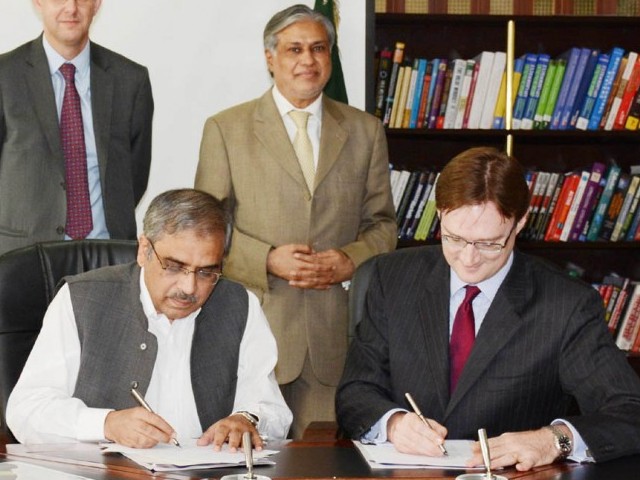
Prime Minister Nawaz Sharif on Monday reshuffled the entire core team of the country’s top taxman in a move the government said was aimed at reforms.
The restructuring of the Federal Board of Revenue (FBR) includes four Grade-22 officers, the most important of whom is FBR Chairman Tariq Bajwa, who has been posted as secretary of the Economic Affairs Division (EAD). Bajwa belongs to the Pakistan Administrative Service, previously known as the District Management Group, an elite cadre of the Civil Service of Pakistan.
Glitch at the FBR
EAD Secretary Saleem Sethi, scheduled to retire next March, has been appointed as chairman of the National Commission for Government Reforms. Finance Minister Ishaq Dar appreciated Sethi’s performance as EAD secretary, who played a pivotal role in striking financial deals with China for securing loans for submarines for Pakistan Navy and construction of the Karachi nuclear power plants.
Nisar Muhammad, member (customs) of the FBR, has been appointed as chairman of the bureau. He is known as a ‘cool-headed decision-maker’ who has been involved in negotiations with the International Monetary Fund (IMF). With his appointment, the chairman’s post has again returned to a civil service cadre belonging to the FBR. He will also manage the affairs of the secretary of the Revenue Division. His post of member (customs) has been assigned to Nasir Masroor Ahmed.
The reshuffle is aimed at changing the status quo and initiating the process of reforms in the FBR, said a senior government official.
Bureaucracy blocks vital reforms in FBR
Premier Nawaz met the restructured taxman team and directed them to carry out their responsibilities in a professional manner to improve the functioning of the FBR, which has been criticised in the media, especially for failing to meet its collection targets.
Some of the reasons were not in the taxman’s control, including the setting of unrealistic goals by the finance ministry and the IMF. Lately, however, revenue collection has started picking up. As of Monday, the collection was up 18% compared to the corresponding period from July 1 to November 16 last year.
Meanwhile, Dar lauded Bajwa’s performance for improving the overall functioning of the FBR. “Bajwa was a key member of the economic team; his transfer is being carried out on his own request,” said a statement of the finance ministry.
Please wait as banks’, FBR systems match
However, sources said Bajwa wanted to manage the affairs of the finance secretary. The incumbent finance secretary, Dr Waqar Masood, has a rich experience of managing books under the IMF’s nose, which has made him an integral part of Dar’s core economic team.
In the past decade, Bajwa has probably been the only FBR chairman to have enjoyed a good reputation despite heading the taxman. He tried to minimise corruption in the FBR and took many administrative actions.
As for other transfers, Member (Inland Revenue Policy) Shahid Hussain Asad has been appointed as director general of the National Centre for Rural Development. He is known as a ‘good taskmaster with good command over tax laws’. He has been replaced by Rehmatullah Khan Wazir, DG on broadening of tax base.
Despite mini-budgets: Tax collection remains abysmal
After Bajwa, the second most important transfer is of Ashraf Khan, member (operation inland revenue), who has been appointed as managing director of the Water & Power Development Authority.
He was responsible for 90% of the taxman’s collection but could not carry out his task in a professional manner. Khan has been replaced by Dr Muhammad Irshad, known as a ‘deliverer’.
The government has also appointed Member (Administration) Shahid Jatoi as member in-charge, Federal Ombudsman, Karachi. He has been replaced by Waqar Ahmed.
Published in The Express Tribune, November 17th, 2015.
1731570357-0/elon-musk-(1)1731570357-0-405x300.webp)
-(1)1717678110-0/Kendrick-(1)-(1)1717678110-0-165x106.webp)






1725254039-0/Untitled-design-(24)1725254039-0-270x192.webp)
1732449527-0/Express-Tribune-(4)1732449527-0-270x192.webp)
1732441230-0/BeFunk_§_]__-(49)1732441230-0.jpg)






COMMENTS (5)
Comments are moderated and generally will be posted if they are on-topic and not abusive.
For more information, please see our Comments FAQ